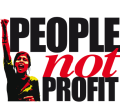
Social Democrats: 29.8% (+3.0), 20 seats (+2)
Independence Party: 23.7% (-12.9), 16 seats (-9)
Left Greens: 21.7% (+7.4), 14 seats (+5)
Progressive Party: 14.8% (+3.1), 9 seats (+2)
Citizen’s Movement: 7.2% (+7.2), 4 seats (+4)
Liberal Party: 2.2% (-5.1), 0 seats (-4)
On the left we’ve basically got the moderate pro-EU Social Democrats, the radical leftist, feminist, environmentalist Left Greens and the Citizen’s Movement which arose out of the recent protest movement and was only formed 9 weeks ago. The main party of the right is the Independence Party who have been in government almost continually for as long as anyone can remember but have lost a huge amount of support over the country’s economic collapse which was caused by the neoliberal economic policies they pushed through over the last 2 decades. The Progressive Party are supposedly a centrist, agrarian party but are probably closer to the right on many policy issues. The Liberal Party (now out of parliament) are populists who have strongly pushed the issue of fishing rights and have been accused of making various xenophobic remarks in recent years.
Now on to the results. The major surprises are the failure of the Left Greens to do as well as most had expected together with the strong showing for the newly founded Citizen’s Movement. That the Left Greens would be the biggest party, as some polls had predicted, seemed to me to be too good to be true and I remembered from the last election in 2007 when again the Left Greens didn’t do nearly as well on election day as many of the polls had predicted. But 22% (an increase from 14% last time) is still not bad and leaves them as perhaps the strongest party of the radical left in Europe. The main reasons I can see for why they didn’t do as well as they could of is the growth of the Citizen’s Movement together with Social Democrat leader Johanna Sigurdardottir’s short time as Prime Minister which gave her party more of a chance to set the agenda than it might have otherwise.
The Social Democrats have been trying to portray their success as an endorsement of the EU and the Left Greens have apparently said they would now be willing to back a referendum on Icelandic membership even if they continue to remain strongly opposed. However according to the polls a majority of people would reject membership so unless the fishing issue gets sorted out I don’t think the pro-EU side should be particularly optimistic that they can win any potential vote on the matter.
Overall, despite my disappointment that the Left Greens didn’t do better, I think there’s plenty to be positive about. For a start the once dominant Independence Party has been severely weakened, losing at least a third of their support, and Iceland will now see its first every left-wing majority government. The Citizen’s Movement which will remain outside government (almost certainly a Social Democrat/Left Green coalition) and has strong links to the protest movement will also, I think, help ensure the new government listens to the people and remains true to the spirit of the revolution which swept away the nation’s corrupt neoliberal government. Most of their voters are in addition people who would probably have otherwise supported the Left Greens. We should also remember that Prime Minister Johanna Sigurdardottir is from the left of the Social Democrats and the very thing about her that appeals most to people, according to the New York Times, is that she comes across as being the complete opposite of everything which characterised the so-called ‘New Vikings’ who ruled the country and brought it to a state of ruin with their reckless neoliberalism.
43% of new MPs women
According to my count of the newly elected MPs 27 out of 63 are women (43%) - a significant increase from the last parliament in which women made up 33% of MPs. This now gives Iceland the second highest percentages of female MPs in Europe (Sweden comes first with 47%). It’s also almost certain that Social Democrat leader Johanna Sigurdardottir will remain in office as the country's first woman Prime Minister and the world’s first openly lesbian national leader. Here’s the figures by party:
Social Democrats: 10/20 (50%)
Left Greens: 7/14 (50%)
Citizen’s Movement: 2/4 (50%)
Progressive Party: 3/9 (33.3%)
Independence Party: 5/16 (31.3%)

